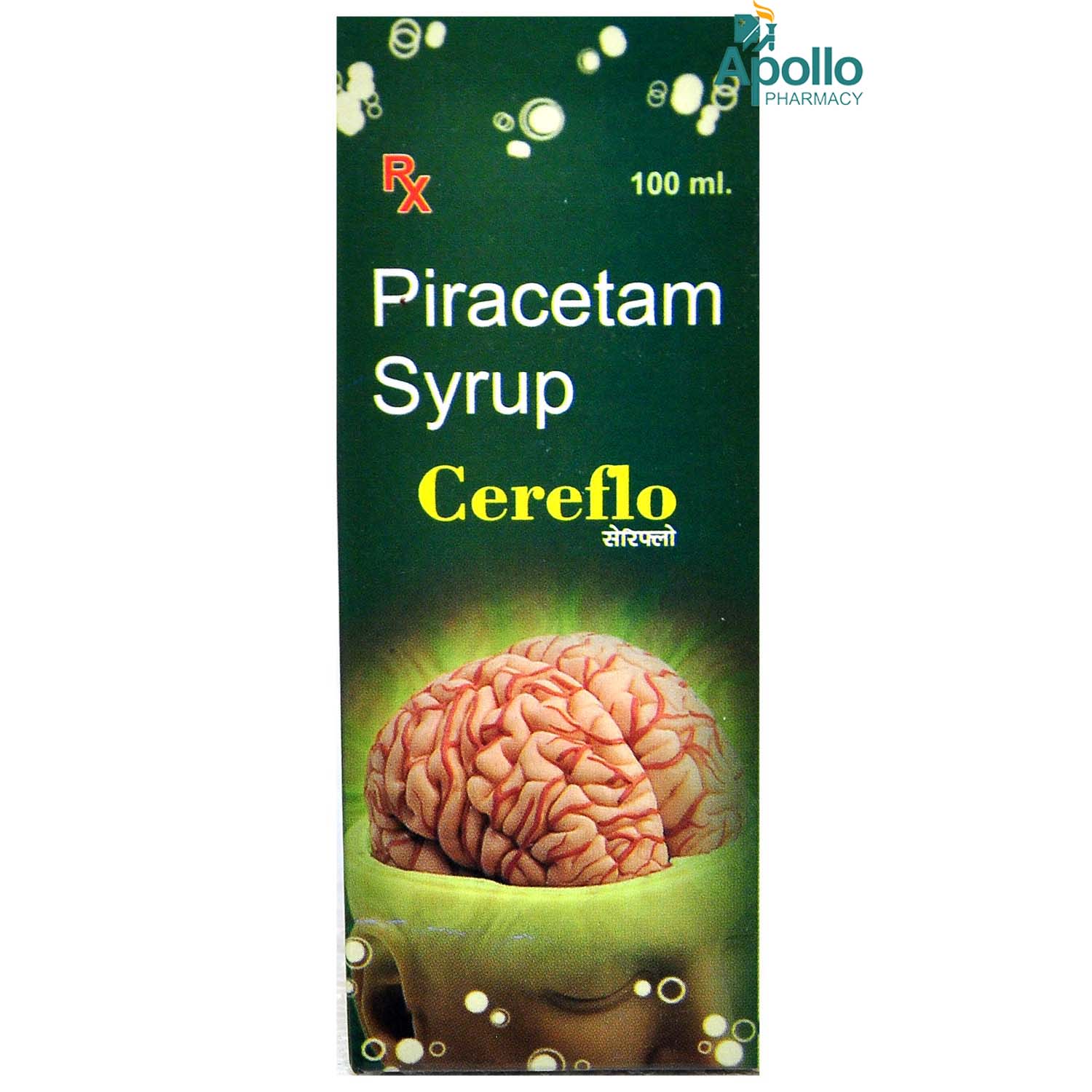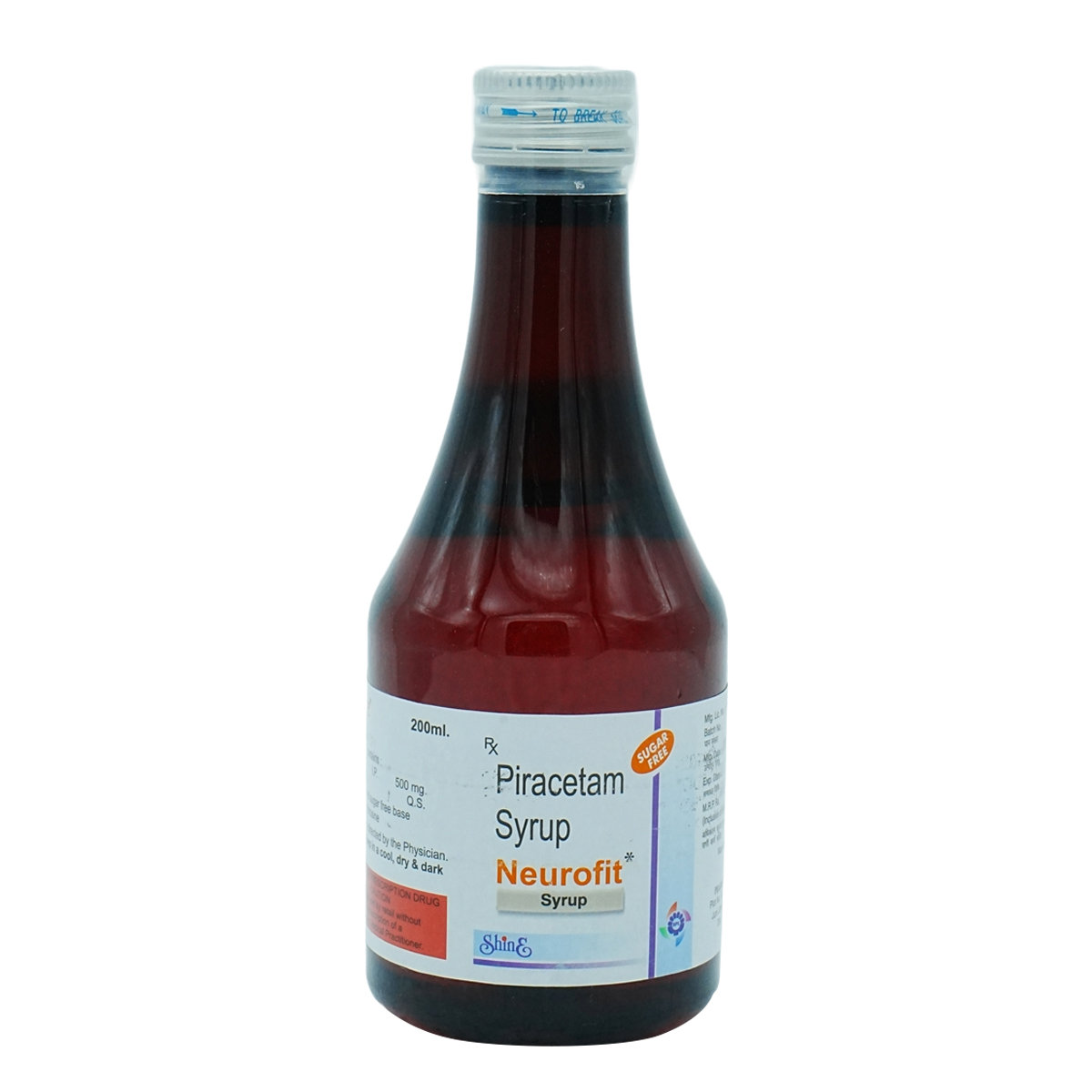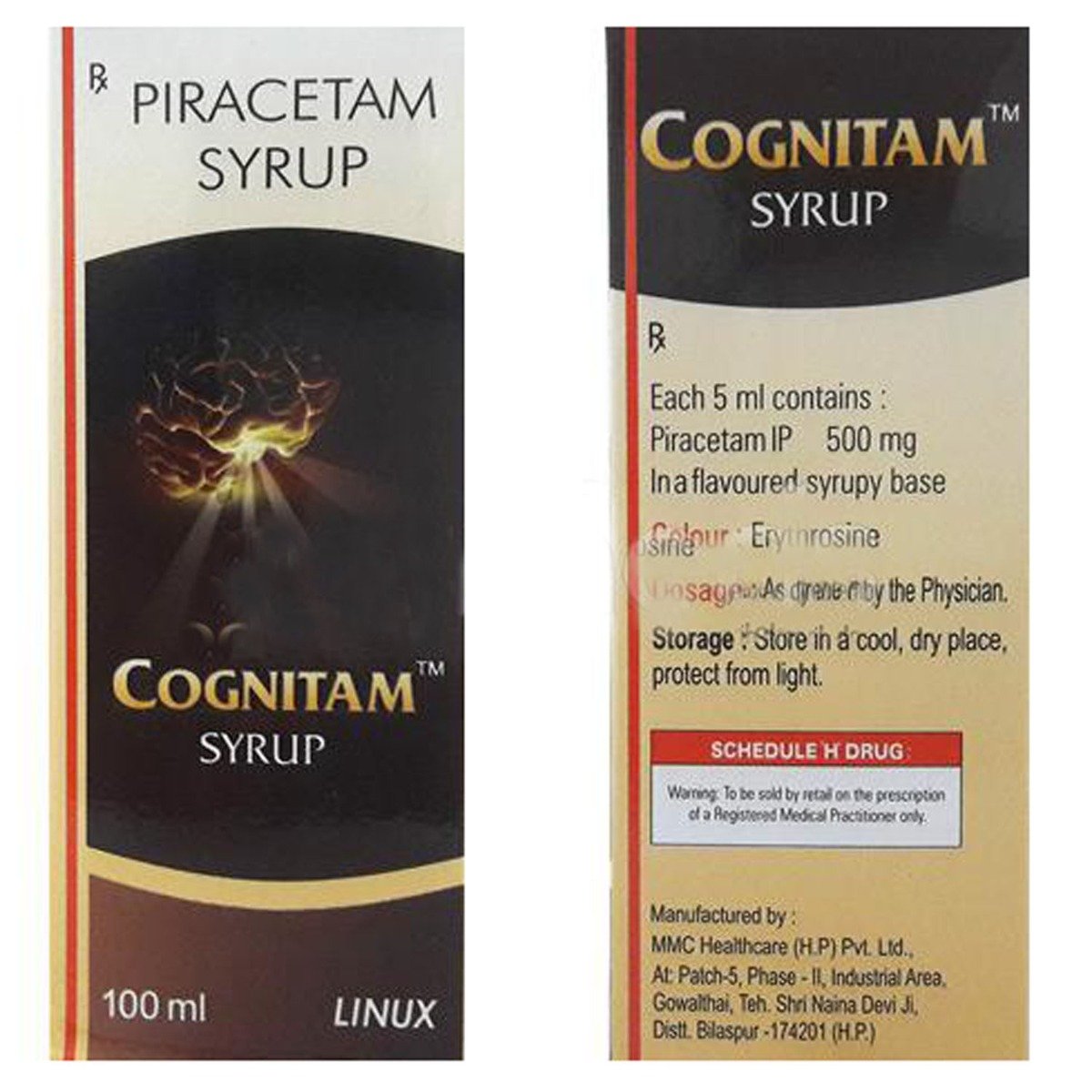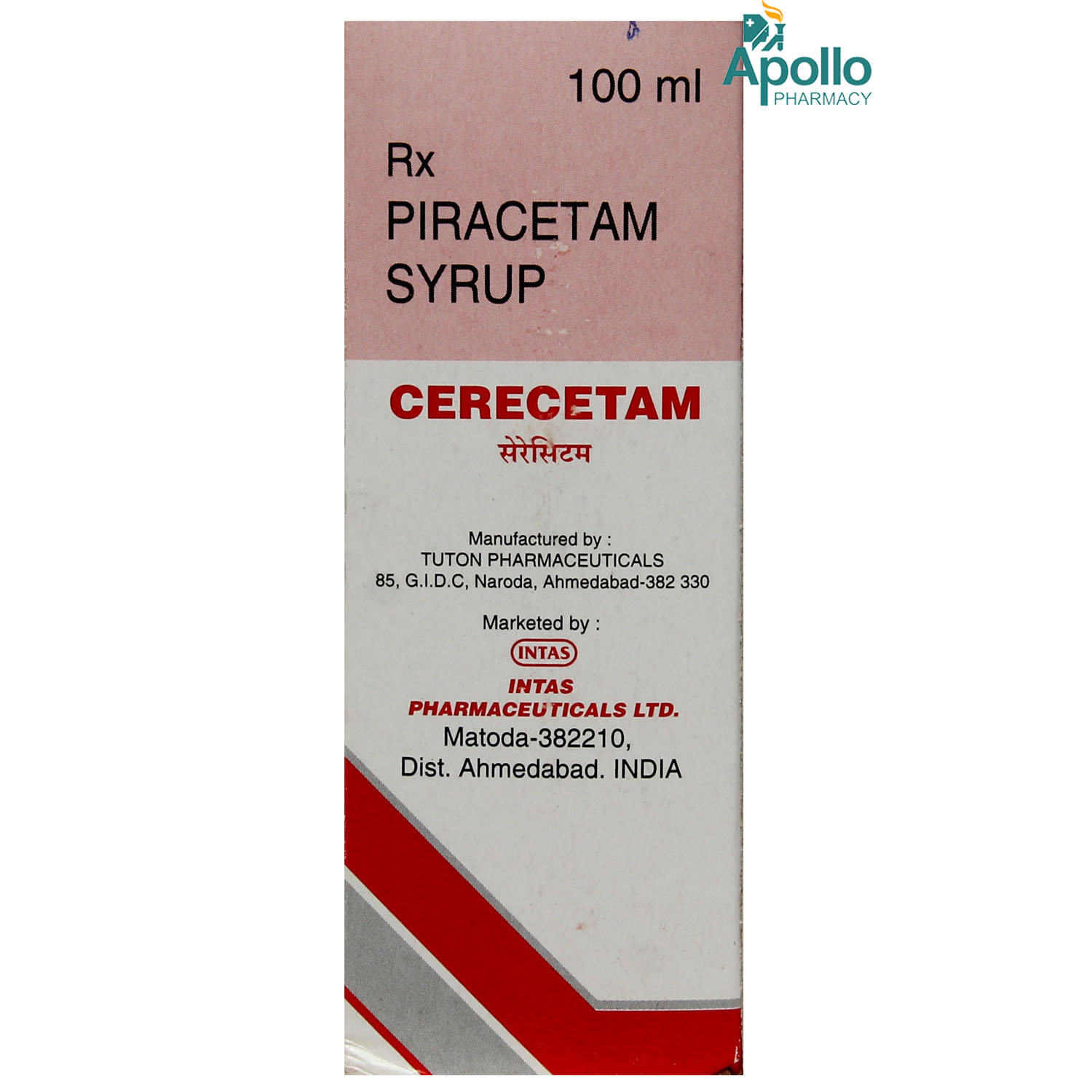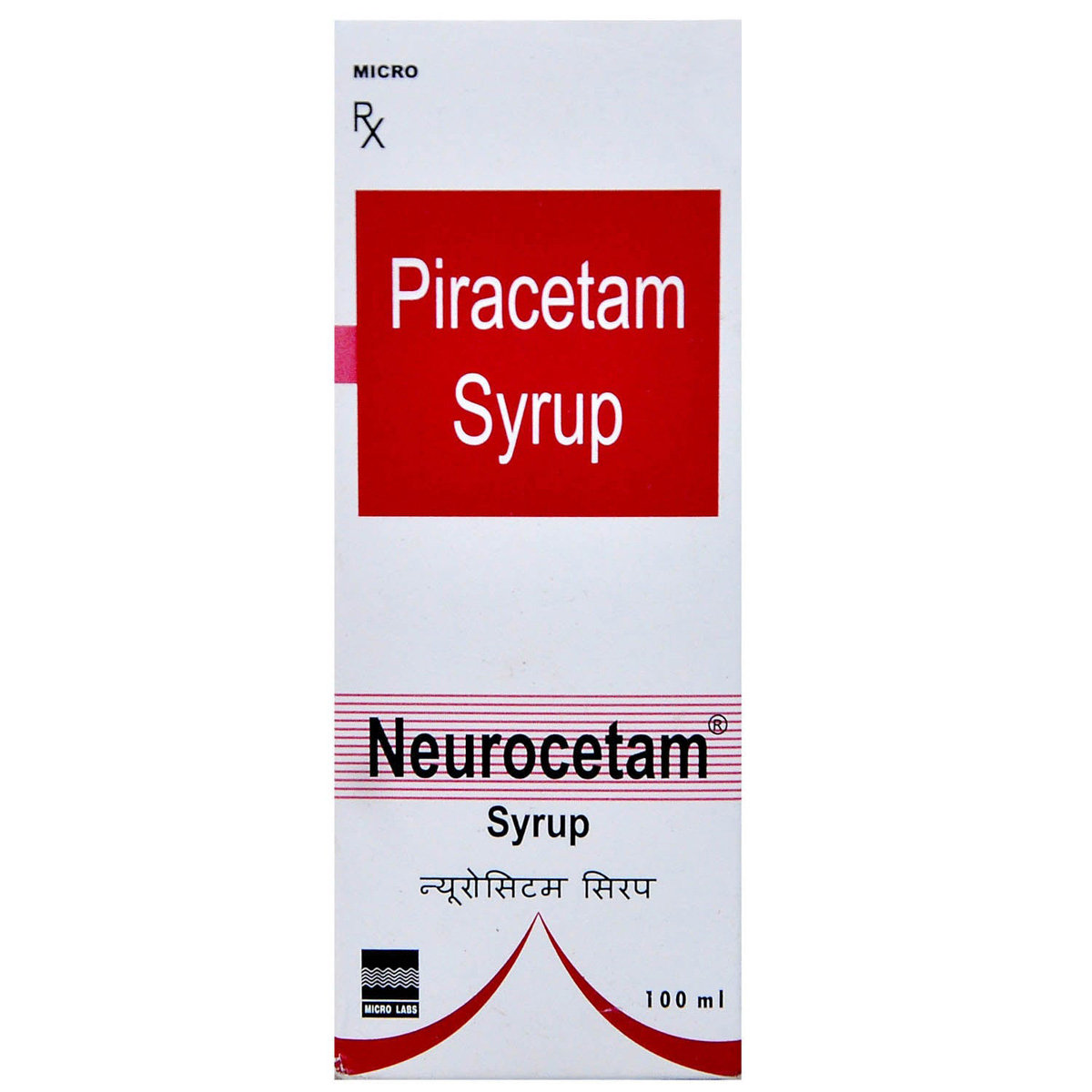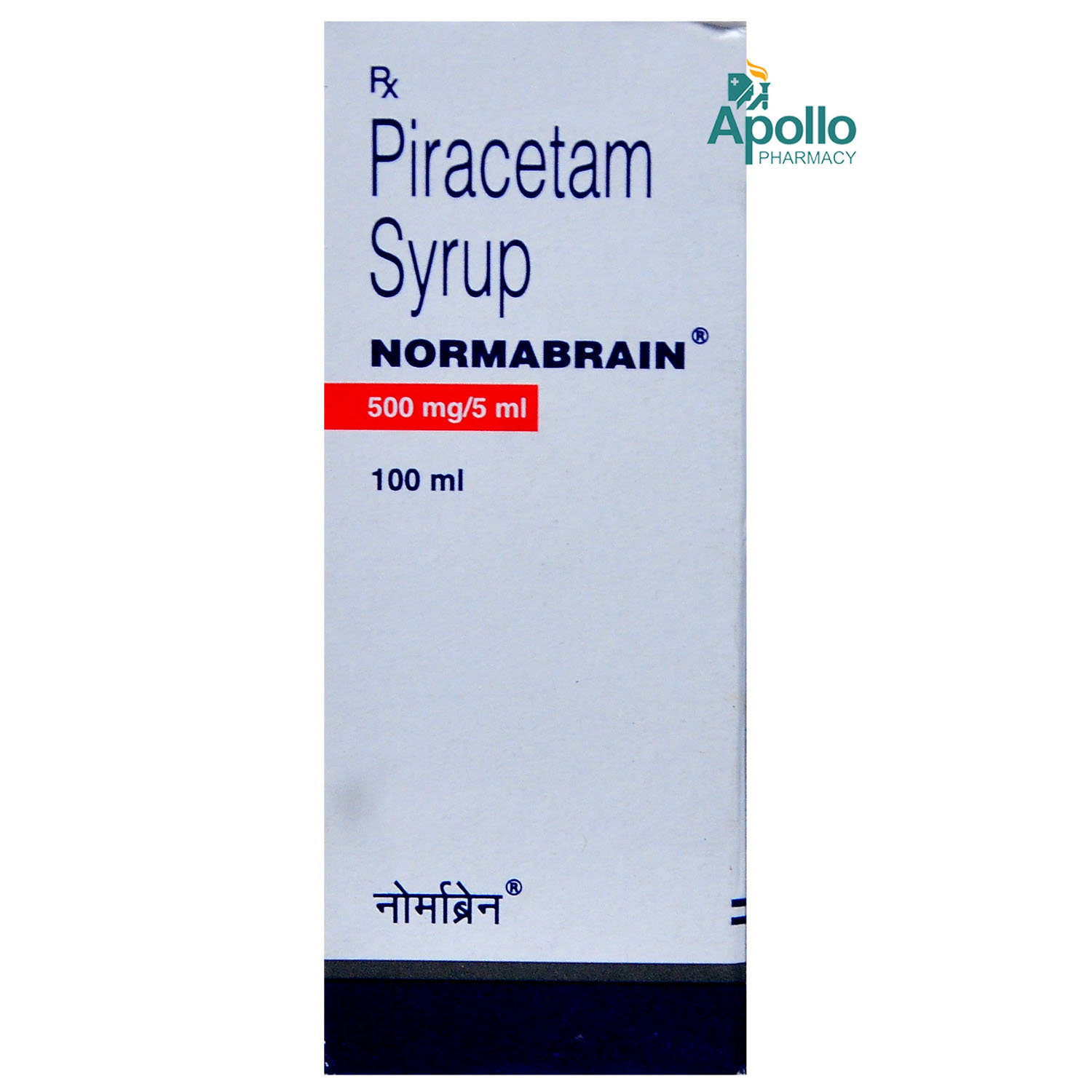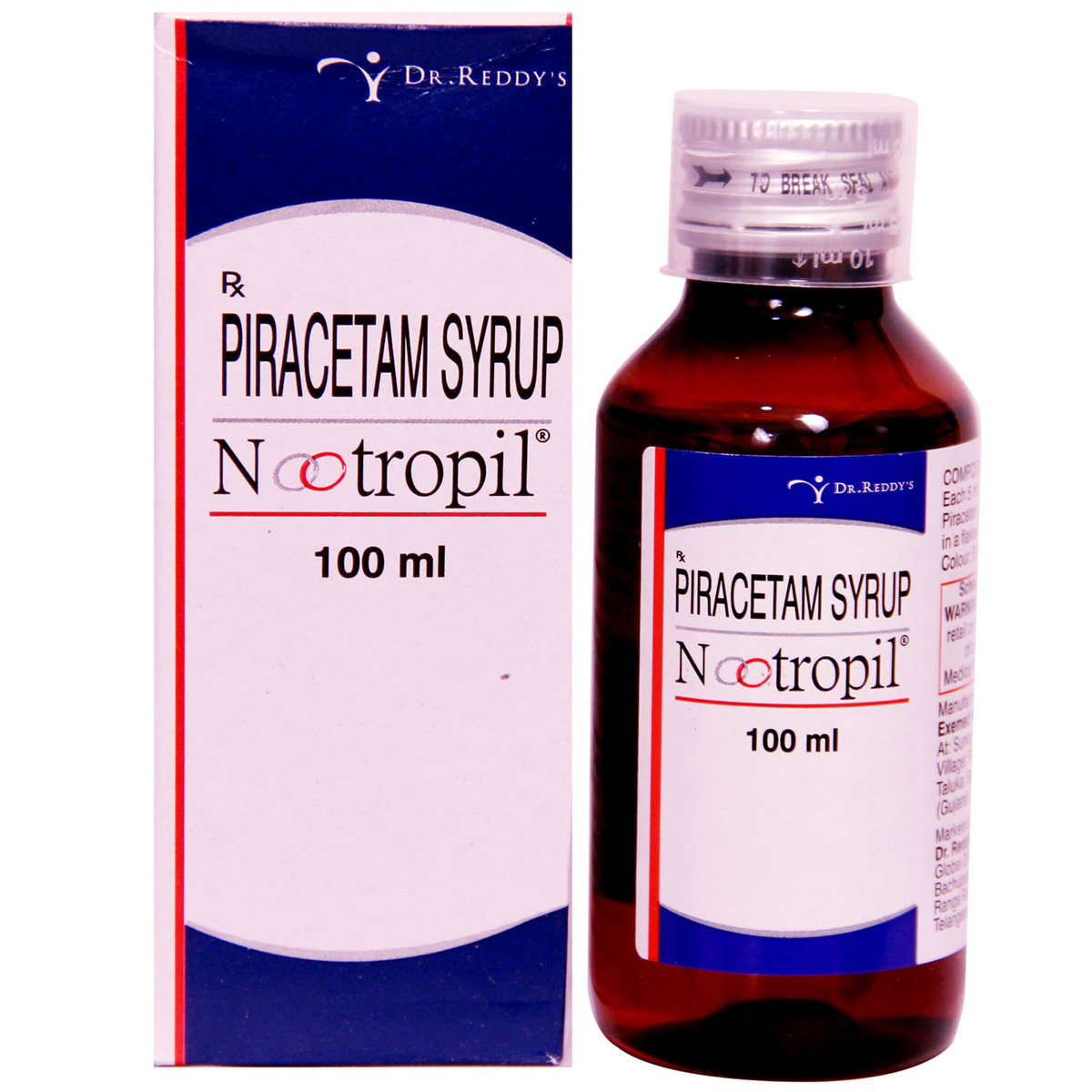- Home
- Cerenorm Syrup
Cerenorm Syrup Substitute
Cerenorm Syrup Substitute
Medicine Composition:
PIRACETAM-500MGAll Substitutes & Brand Comparisons
RX
Out of StockAnitam Syrup
Anikem Laboratories
₹90
(₹0.81/ 1ml)
47% CHEAPERRX
Out of StockPirawel Syrup 170 ml
Welcure Drugs & Pharmaceuticals Ltd
₹250
(₹1.32/ 1ml)
13% CHEAPERRX
Out of StockATAM Syrup 200 ml
Sbs Biotech
₹310
(₹1.55/ 1ml)
1% COSTLIERRX
Out of StockCetasmo 500 mg Syrup 100 ml
Riasmo Lifesciences
₹210
(₹1.89/ 1ml)
23% COSTLIERRX
Tritam Syrup 100 ml
₹210.5
(₹1.9/ 1ml)
24% COSTLIERRX
Cereflo Syrup 100 ml
Sigmund Promedica
₹220
(₹1.94/ 1ml)
26% COSTLIERRX
Neurofit Syrup 200 ml
Shine Pharmaceuticals Ltd
₹522
(₹2.35/ 1ml)
53% COSTLIERRX
Pirament Syrup 100 ml
Ipca Laboratories Ltd
₹268
(₹2.41/ 1ml)
57% COSTLIERRX
Cognitam Syrup 100 ml
Linux Laboratories Pvt Ltd
₹269.5
(₹2.43/ 1ml)
58% COSTLIERRX
Piralex 500 mg Syrup 100 ml
Arches Pharmaceuticals
₹276.5
(₹2.49/ 1ml)
62% COSTLIERRX
Cerecetam Syrup 100 ml
Intas Pharmaceuticals Ltd
₹324
(₹2.92/ 1ml)
90% COSTLIERRX
Neurocetam Syrup 100 ml
Micro Labs Ltd
₹384
(₹3.46/ 1ml)
126% COSTLIERRX
Pirapill Syrup 100 ml
Gladstone Pharma India Pvt Ltd
₹384
(₹3.46/ 1ml)
126% COSTLIERRX
Normabrain Syrup 100 ml
Torrent Pharmaceuticals Ltd
₹453
(₹3.99/ 1ml)
160% COSTLIERRX
Nootropil Syrup 100 ml
Dr Reddy's Laboratories Ltd
₹463
(₹4.17/ 1ml)
172% COSTLIER

When Should You Consider Switching from Cerenorm Syrup?
Patients may explore substitutes in the following scenarios:
- High monthly cost of Cerenorm Syrup
- Non-availability in local pharmacies
- Generic recommendation by a doctor
- Side effects or better tolerability with alternatives
What to Know Before Switching
Before you switch from Cerenorm Syrup to another medicine, here are some important points to keep in mind:
Same salt, different brands:
Most substitutes contain the same active ingredient - PIRACETAM-500MG, but the fillers, coating, or manufacturing quality may vary slightly.
Consult your doctor first:
Even if the salt is the same, your doctor can confirm if the substitute is right for your condition, dosage, and health history.
Watch out for allergies or reactions:
Some people may react differently to certain brands due to inactive ingredients. If you notice any side effects, inform your doctor immediately.
Price ≠ effectiveness:
A lower-priced substitute doesn't mean it's less effective. Many generic medicines work just as well as branded ones.
Check the dosage form and strength:
Always match the substitute’s strength (e.g., 5mg, 10mg) and form (tablet, capsule, syrup) with what your doctor prescribed.
Uses
Cerenorm Syrup is used in the treatment of myoclonus (a movement disorder), memory disorders, vertigo, and dyslexia (a learning disorder). The detailed uses of Cerenorm Syrup are as follows:
- Movement Disorders: Cerenorm Syrup can help lessen involuntary movements in people with certain movement disorders, such as dystonia.
- Mood Stabilisation: Off-label use may occasionally be employed to help people with anxiety disorders or associated symptoms manage their mood and lessen their worry.
- Cognitive Enhancement: In high-demand scenarios, such as studying or performing strenuous work activities, some people utilise Cerenorm Syrup to enhance cognitive function, including memory, focus, and overall mental performance.
- Treatment of Vertigo: Cerenorm Syrup is mainly used to treat vertigo, which is a disorder that can make you feel lightheaded and like you're spinning.
Medicinal Benefits
Cerenorm Syrup is a nootropic drug which belongs to a group of medicines called GABA analogues. Cerenorm Syrup is used to treat myoclonus (a movement disorder). Additionally, Cerenorm Syrup is also used for the symptomatic treatment of cognitive and memory disorders caused by organic disorders, vertigo, and dyslexia (learning disorder) in children above 8 years. Cerenorm Syrup acts on the brain and nervous system, thereby protecting against a shortage of oxygen. It also improves the activity of a chemical messenger called acetylcholine, which helps in communication between brain cells. Cerenorm Syrup may also act on the N-methyl-D-aspartate (NMDA) receptors that are involved in the transmission of nerve signals, which play an important role in memory.
FAQs
The substitutes of Cerenorm Syrup contain the same active salt(s) - PIRACETAM-500MG. However, they may differ in price, manufacturing quality, and inactive ingredients. Speak to your doctor to find a suitable option.
Switching to a generic substitute medicine in the place of Cerenorm Syrup is often possible if it has the same salt, strength, and dosage form. But always check with your doctor before making any changes to your medication.
Generics versions of Cerenorm Syrup are typically more affordable because they don’t include the original brand's research, development, and marketing costs. They contain the same active ingredient and are approved for safety and effectiveness.
Most people don’t notice any difference. However, some may react to different fillers or coatings. If you notice any unusual symptoms after switching, consult your doctor.
Make sure the new medicine has the same active salt, strength, dosage form. Always confirm the change with your doctor or pharmacist.
Substitutes of Cerenorm Syrup meet the same safety and efficacy standards as Cerenorm Syrup, but small differences in absorption or formulation can exist. A doctor can help you choose the right one for your needs.
Yes. Substitutes of Cerenorm Syrup may vary in color, size, or shape due to differences in manufacturing and branding, but this does not affect how they work.
Yes, it’s generally safe to switch between multiple substitutes of Cerenorm Syrup if they have the same salt and strength. However, always inform your doctor so they can monitor how your body responds.
Yes, many people safely use substitutes of Cerenorm Syrup for long-term treatment. Just ensure it’s done under medical supervision.
If your symptoms stay under control or lab results remain stable, the substitute for Cerenorm Syrup is likely working well. Regular follow-ups with your doctor are important.
Absolutely. Even with the same salt, small differences can affect how your body responds when switching from Cerenorm Syrup to its substitute. Always consult your doctor before switching.
Cerenorm Syrup used to treat myoclonus (a movement disorder). Additionally, it is also used to treat memory disorders, vertigo, and dyslexia (learning disorder) in children above 8 years.
Cerenorm Syrup acts on the brain, and nervous system thereby protects against shortness of oxygen. It also improves the activity of a chemical messenger called acetylcholine which helps in communication between brain cells.
Cerenorm Syrup is used in the symptomatic treatment of cognitive and memory disorders caused due to organic disorders. However, Cerenorm Syrup does not treat neurodegenerative dementia (memory loss) such as Alzheimer's disease.
Do not discontinue Cerenorm Syrup without consulting your doctor. To treat your condition effectually, continue taking Cerenorm Syrup for as long as prescribed. Do not be reluctant to speak with your doctor if you feel any difficulty while taking Cerenorm Syrup.
Diarrhoea could be a side-effect of Cerenorm Syrup. Drink plenty of fluids and eat non-spicy food if you experience diarrhoea. Consult your doctor if you experience severe diarrhoea or if you find blood in stools.
Yes, Cerenorm Syrup is used to treat vertigo. Vertigo is a sudden sensation of spinning, either external or internal, which causes a feeling of being off-balance.
Cerenorm Syrup may cause an increase in weight. Follow a healthy diet and exercise regularly to maintain a proper weight. Consult your doctor if you notice weight gain.
Cerenorm Syrup is used to treat dyslexia combined with other appropriate measures, such as speech therapy, in children and adolescents aged above 8 years. Dyslexia is a learning disorder characterised by reading and learning problems.
Hallucination is a medical condition in which the person may feel, hear or believe things that are not true, see things that are not there, feel unusually suspicious or confused. Cerenorm Syrup may cause hallucinations in some cases. So, if you experience hallucinations while taking Cerenorm Syrup, please talk to your doctor immediately.
Cerenorm Syrup is not recommended if you are allergic to Cerenorm Syrup or any of its ingredients. Avoid Cerenorm Syrup if you have severe kidney issues, a history of bleeding in the brain (cerebral hemorrhage), or Huntington’s disease (a genetic disorder, that affects brain function and movement).
Take Cerenorm Syrup with or without food, or as advised by the physician. Swallow it with a glass of water daily at the same time for effectiveness. Do not chew or crush it.
Yes, Cerenorm Syrup can be used for long-term if advised by a doctor. However, always follow the doctor’s instructions.
Cerenorm Syrup is typically prescribed for specific medical conditions, and its use to enhance cognitive abilities in healthy individuals is not recommended. Consult a doctor before using any medication for reasons other than its intended purpose.
If you forget to take a dose of Cerenorm Syrup, take the missed dose as soon as you remember. If it is time for the next dose, skip the missed dose and continue taking the regular dose. Avoid taking the double dose to make up for the missed one.
The dose adjustments may be required in patients with kidney problems. Therefore, if you have any kidney problems, inform your doctor before taking Cerenorm Syrup.
Cerenorm Syrup may cause side effects such as headache, sleepiness, stomach pain, diarrhoea, weakness, nausea, and restlessness. These do not require any medical treatment as they will gradually reduce over time. Please consult a doctor if these side effects persist for longer than expected.
Before taking Cerenorm Syrup, you should inform your doctor if you have liver, kidney or bleeding problems. It is contraindicated in patients who are allergic to Cerenorm Syrup.
Cerenorm Syrup can interact with other medications, such as thyroxine (a hormone), warfarin (an anticoagulant), and aspirin (a painkiller). Therefore, please consult your doctor before taking Cerenorm Syrup with other medicines.


